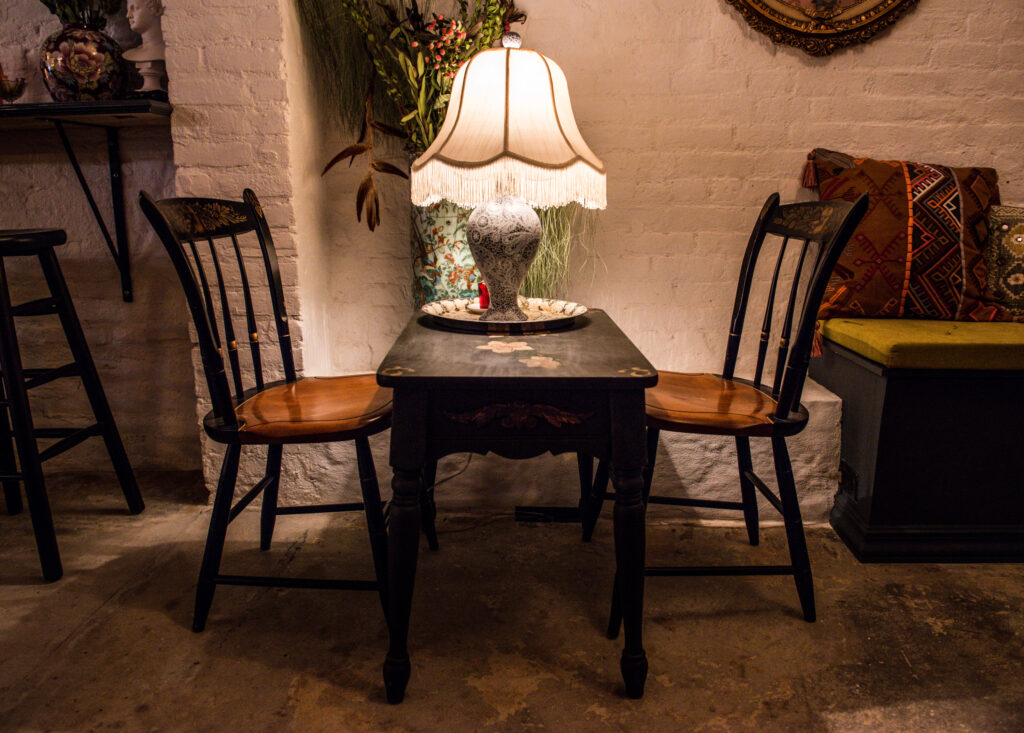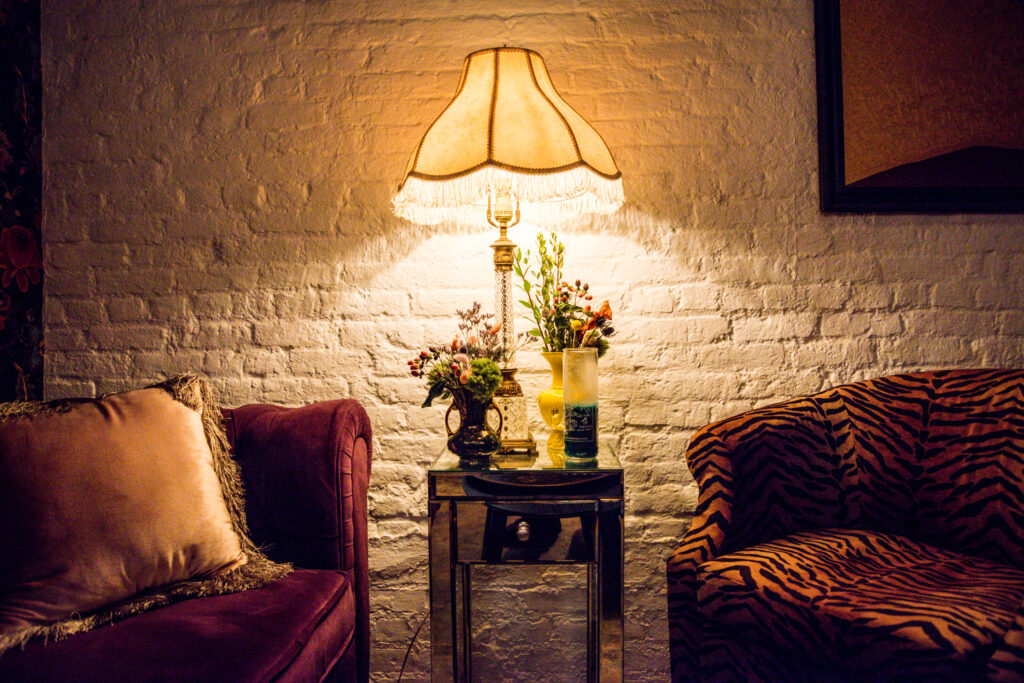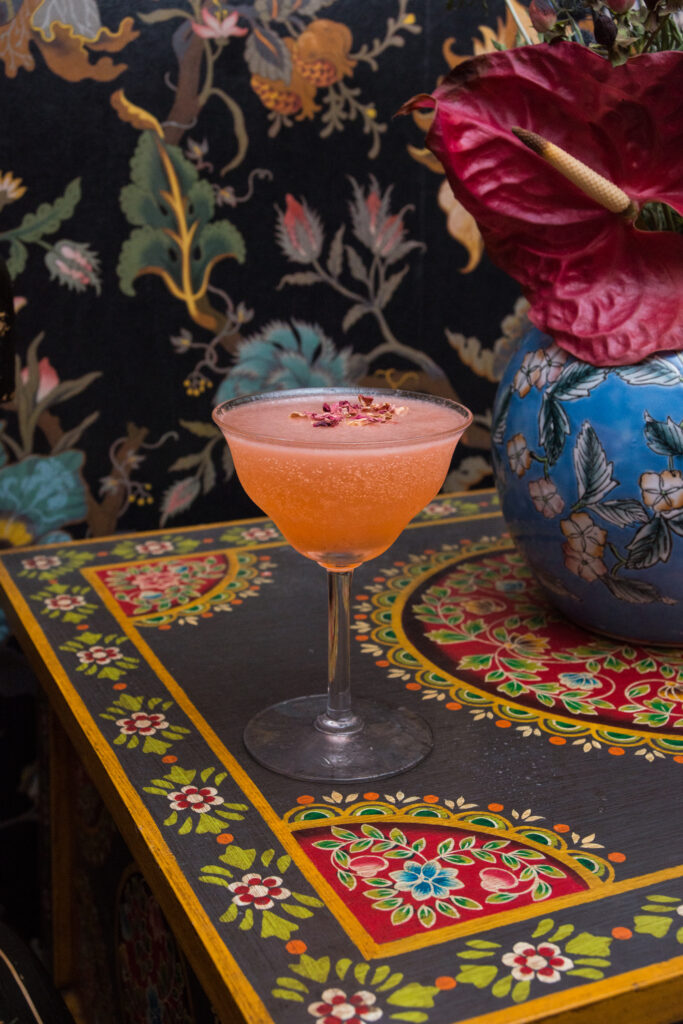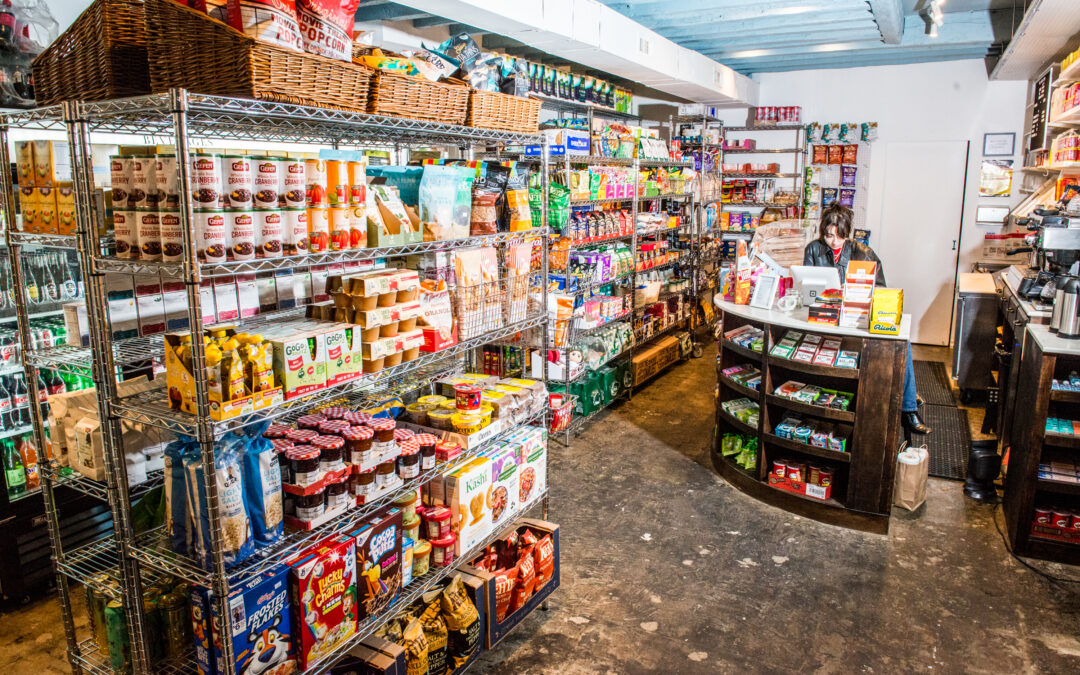What began as a corner store to fulfill a neighborhood need quickly became so much more. Walk past the fully-stocked convenience store and you’ll find yourself in one of Downtown Manhattan’s most popular new speakeasies: The Little Shop!
DOWNTOWN had the opportunity to speak with Philippe Boujnah, one of the founders of The Little Shop, about how it has remained a local staple over the past few years.
Tell us a little bit about The Little Shop.
Philippe: In terms of the timeline, my business partner and I opened in December 2019, so three months before Covid hit , we had to shut down. But it was relatively popular right away, and I think a lot of the reason is because we did it very organically, and became something quite important for the neighborhood, so in the sense of the shop being not a gimmick for the speakeasy but something for the community, something utilitarian, something they needed. I’ve lived in the community, in South Street Seaport for over 20 years now, and we needed a corner shop, a little corner store. And so the opportunity came from that and then having enough space in the back to do a neighborhood bar, a place that is very comfortable, where I would want to come and relax with friends and have a delicious cocktail, but nothing too formal. Just, you know, really kind. Me and my business partner, we both come from different backgrounds and different cultures, and we really wanted to bring some of that and recreate something that was global, and at the same time familiar and comfortable.
So, it wasn’t about, “Oh, let’s do a hidden speakeasy.” It was more about opening something the neighborhood needs and a place where people in the neighborhood and others can come and just be comfortable, and enjoy a nice drink.
And then the concept kind of proved itself because, when we shut down the bar, the store thrived since people didn’t really want to leave the neighborhood, and we were right there so they could come get their milk, their coffee, their eggs, whatever they needed from us directly, and right away we became a pillar of the community in a way, but, you know, thanks to the store first.
And then after that, we were able to do cocktails to go and start opening the bar a little bit more in the back until we reopened in April 2021, and that was kind of the third time we reopened the bar. People can buy snacks and chips and candy and whatnot and then get it served on nice little platters, little China or vintage glassware. So the concept kind of became true to itself and really symbiotic.
It’s been humbling and it’s been great that people have been coming in here and talking about it. I know it’s all over TikTok. It’s nice to know that we were able to grow organically and authentically through this new type of word of mouth. We really never did any promotion, so it was rewarding to kind of get that type of traction.

You said that you wanted the place to be “global, yet familiar.” How did you go about that?:
Philippe: Our inspiration is global because we both are from different countries and have different origins in Europe and I’ve traveled a lot, so I think it’s just more in terms of the inspiration of our favorite places that we went to. And New York is just like that. You don’t really need to have a label in New York City. You can just be a cool bar. And then the idea was, when we wanted to furnish the place, it was more sustainable for us to figure out a way to reuse antique furniture, and we went to antique markets and flea markets all over New England and just picked up old furniture and vintage furniture and barware and glassware that we liked and that we thought could jive together and look nice in the space. And so therefore we have some furniture from Denmark, some from Spain, pillows from India, different tables and lamps from England. Different objects and furniture from different parts of the world. We have lamps from Egypt, and we commissioned paintings from an artist in Tunisia. And that’s not really because we wanted it to be global, but because that’s what we found, and the artist is someone I knew that just happened to be Tunisian. It was quite organic the way it came together. But again it was really just about creating a really comfortable environment.

Who is The Little Shop for?
Philippe: The neighborhood first, and then, of course, anyone. I think that, again, the goal was not to have a target audience, but to make a place where you would feel comfortable at any age. So very often we’ll have a table with a bunch of young people, for example for a 21st birthday, or people working in fashion, and next to that we’ll have a couple drag queens, and next to them we’ll have a 75-year old couple from the neighborhood that wanted to have a nice martini. We actually pride ourselves on having a very diverse customer. We don’t refuse anyone unless they’re misbehaving. We have very eclectic crowds, just like New York is. Our music can be too, sometimes. We try to cater to that crowd, but always have something that’s just nice and creates a good vibe. Everybody just feels comfortable here for birthday parties, for events, for dates. Of course a lot of people come here on dates. A lot of young people like to bring their parents here to show them the place. And it’s comfortable because we have a lot of couches, so even for older people it’s a nice place to come because there’s that kind of loungey aspect where they’re just a little more comfortable than at a dive bar. We really wanted to not forget anyone.

How have you fared during the pandemic, what response have you seen from the community?
Philippe: It became a pandemic-proof concept, and we were able to keep our employees, but the response was amazing, very supportive from day one, even with the community board before the pandemic. And during the pandemic, people really wanted us to succeed. People thank us for keeping the shop open during that time, especially during those first few months.
And then once we started doing cocktails-to-go, and people started coming back, also the community changed, a lot of people had left, people moved to the suburbs. And then a lot of young people came in because rents were lower, so we had a lot of change in terms of our neighbors throughout the pandemic. But everybody has always been very wonderful, and thankful and supportive. It’s been very nice and quite humbling.
*All Images Courtesy Of The Little Shop

